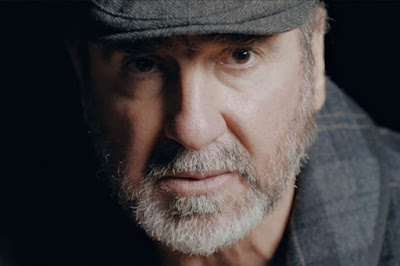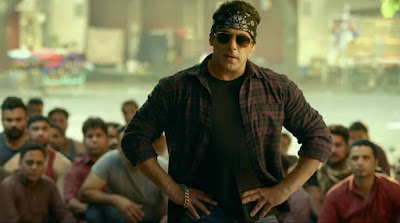Whishaw goes wild. That was surely one prospective tagline for Aneil Karia's Surge, in which Ben Whishaw, cuddly voice of Paddington, cuts loose in a way you won't have seen before - and with an intensity only this very special performer could summon. His Joseph is introduced to us as a rather taut-seeming Stansted security worker whose response to the elevated noise and chaos of the 21st century has been to retreat inside himself; his primary coping method involves raking the prongs of a fork over his gums. That self-harm merits one level of concern, but we join Joseph just as his rage is starting to spill over, carrying him towards the very edge of the precipice: flipping out in his ultra-controlled workspace, committing civil disobedience on the Overground, and worse besides elsewhere. What's really unnerving here is how this one loose screw is rattling around within a much bigger picture of madness and fatigue, of a whole society starting to come apart. A wild-eyed airline passenger (Pete Meads) presumes to know Joseph before predicting the end of the world ("not long now"). Joseph's terse father (Ian Gelder) all but drives over a pedestrian in his haste to get back to a decidedly fraught home. There's something in the air, and the water, and quite possibly even the sky: it's eminently possible Karia and his co-writers Rupert Jones and Rita Kalnejais were interested in telling the story of these lives and these lives alone, but if I had to pick the film that best encapsulated the paranoid, punchdrunk mood of Britain in the years immediately following the Brexit vote, Surge would be it.
In part, that's down to a director wielding his lead actor as one would a lightning rod. Surge doesn't have scenes so much as sudden changes in atmospheric pressure; the handful of set-ups that open in conventional territory are invariably those that spiral most rapidly out of control, their dramatic risks only heightened by the decision to shoot on actual streets, around real passers-by. North London becomes a rat run, a maze of brick walls Joseph keeps bashing his head against. The film's first movement has him struggling to overcome mounting obstacles (and his own frustration) while attempting to hook up a colleague's television; a later stretch genuinely suggests a Ben Whishaw remake of Crank, ending in a fistfight with a beefed-up Angelos Epithemiou. Joseph's intentions are largely good, and there's even a kind of pleasure to be observed in his unravelling: clock the frantic sex he enjoys with that colleague, as strong a signal as any that all bets are now off, and that there's a level of mania that has become socially acceptable. But he's just as often set on the wrong road, turned headlong against the world. Even when he fashions a sanctuary for himself amid the cushioned quiet of a boutique hotel room (a great setpiece, filming something no-one's thought of filming before), it's not long before he's driven to trash that, too. Destruction is ever the goal: the closer Joseph sprints towards the void, the happier he seems to get.
Flashes of earlier reference points are visible amid this literal mad dash: a trace or two of Taxi Driver, inevitably; but also Adrian Shergold and Tony Marchant's BBC2 drama Holding On, the last great depiction of London crazies; Lodge Kerrigan's hard-to-watch, harder-to-find, yet once-seen-never-forgotten indie Clean, Shaven; perhaps even a hint of the Safdies' recent stress tests. That Surge mostly weaves its own helter-skelter path through them marks it as one of the most promising British debuts in years - and this despite a blatant narrative flaw it cannot finally outrun: how implausibly forgiving the Metropolitan Police are to the protagonist, even given his skin colour. (That's why the third act seems a little undercranked, as it were: the stakes are never quite as life-or-death as they could have been.) Whishaw, however, is extraordinary and terrifying throughout, like a tooth grinding itself down before our eyes. This isn't just a committed performance, constructing an entire loose cannon from that initial loose screw, it's also one of those performances that makes complete sense of the character's descent into insanity, and why someone would go off the rails so. (I mean, look around you. It's amazing more people don't.) You catch Karia's camera straining to keep up with his every flail and lurch - though it never misses Whishaw's most potent effects, like the grin he flashes as he flees one crime scene, that of a man in the grip of some dark, dark forces. I don't believe I've ever felt quite so worried for an actor before, or even been made to think so much about the toll performing at this level must take. I hope Whishaw got a full month's worth of sleep the minute Karia called a wrap, and that he had someone around to give him the biggest of hugs the moment he woke up again. The least you can do is keep an eye on him for 100 minutes; madness in great ones must not unwatched go.
Surge is now playing in selected cinemas, and available to rent via Prime Video and Curzon Home Cinema.














